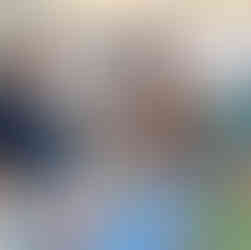‘Marine SABRES in Fairs' at FIMAR 2025
- Aug 26, 2025
- 2 min read
By Laura Caciagli, LifeWatch ERIC
On June 6th - 8th 2025, LifeWatch ERIC and ECOAQUA-ULGPC (University Institute for Research in Sustainable Aquaculture and Marine Ecosystems) presented the second 'Marine SABRES in Fairs' at FIMAR 2025/Feria Internacional del Mar, or International Sea Fair, in Las Palmas de Gran Canaria.

The event, which symbolically ended on World Oceans Day, was a truly inspiring international event that was of great important for the blue economy of the Canary Islands and the rest of Macaronesia. Conference visitor numbers were estimated in the region of 14,000 (according to digital press and FIMAR 2025 social media). World Oceans Day fitted perfectly with the setting of FIMAR 2025, which was organised with the important mission of disseminating scientific knowledge around our global oceans and marine space. The event not only invites partcipants to reflect on the challenges facing our oceans, but also reinforces our collective commitment to their conservation through innovation, education and responsible action.
Approximately 1,000 visitors, including students, families with children, and the general public at large, passed by the LifeWatch ERIC stand to learn about the importance of marine biodiversity and ecosystems. Educational themes included ways to restore marine biodiversity and support a sustainable blue economy by increasing the uptake of ecosystem-based management.
The 'Marine SABRES in Fairs' event highlighted the activities being carried out in the project's Macaronesia DA with a special focus on the marine biological corridor between the Azores, Madeira and Canary archipelagos, as well as eco-tourism best practices to foster a sustainable blue economy for the entire region. Researchers from ECOAQUA-ULPGC got a chance to showcase the Canary Island's rich biodiversity and valuable marine ecosystems through samples, demonstrations and storytelling of the importance of rodolith beds as a benthic habitat for biodiversity conservation. Rhodolith beds are underwater formations on the seabed, created from living and dead, ball-shaped pieces of coralline red algae
Videos created by the LifeWatch Italy Multimedia Production Centre for Marine SABRES were presented as well as research aims and results achieved so far. The project brochure was widely distrubuted and it was a fantastic opportunity to showcase the project's achievements in these areas so far!






















Comments